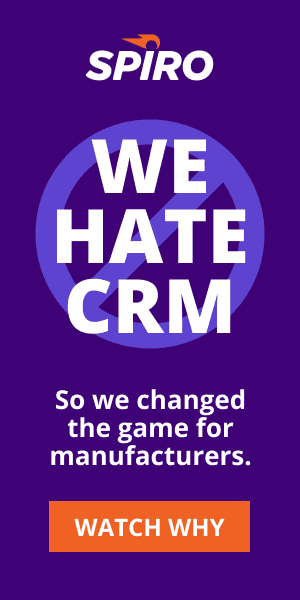How to Not Screw It Up When You Send Sales Emails
I said it before and I’ll say it again: Phone calls are the best way to get in touch and keep in touch with prospects. But emails do have their place, even if it is next to the box of kitty litter.
Emails are a dime a dozen. Virtually any person you talk to will tell you they get too many of them, their inbox is full to bursting, and they’ve just learned to ignore the fray. If that’s the case, you bet your ass it’s going to be an uphill battle to get a prospect’s attention via the digital dog pile.
There’s an upside to that truth, however. You could, for example, probably get away with emailing more frequently than you think. If emailing once a week seems like pestering to you, you must be quite vain. Did it ever occur to you it hasn’t even been read? Yeah, you should always assume so.
With this in mind, you now have carte blanche to send more than one email a week (and Spiro’s sales automation CRM will help remind you to do so). Permission granted. But you still have to make each email count.
Don’t Say ‘I’m Just Catching Up’
Don’t bullshit. Get to the point and say what you want. Let’s talk about the proposal, etc. Why couch it with language that deflects from the purpose? You don’t have time and neither do they. Trust me, your busy prospect will appreciate your respect for their time.
Don’t Be Lazy About Your Subject Line
We use email at Spiro to get feedback from legendary sales guys who’ve downloaded our beta app. We ask them to fill out a form – a lot of times they don’t do a great job or don’t do it at all. We’ve used a lot of different techniques to get people to fill out the form, I can tell you. And the one that worked the best was as simple as could be: a change in subject line.
We’ve found that response rates for using different words or phrases can be dramatically different. We sent out an email with the subject line “don’t go breaking my heart.” Our response rate was through the roof – at around 22 percent! When writing emails, avoid using uninteresting or vague email subjects.
Don’t Say ‘Hope This Finds You Well’
Why wouldn’t they be well? It’s a meaningless cliche, a filler. You should be as succinct and to the point as possible. If you give the reader the ability to opt out because it’s not immediately grabbing them, you’re doing yourself a disservice. Any introductory blather makes your emails less effective.
Use these tips to help you craft an email that can’t be ignored (more than 10 times). Email might be inferior to phone calls, but when it is necessary or appropriate to send an email, be sure to make it count! What are some email tactics you’ve found effective? Let us know below.
Photo courtesy of www.clkr.com

